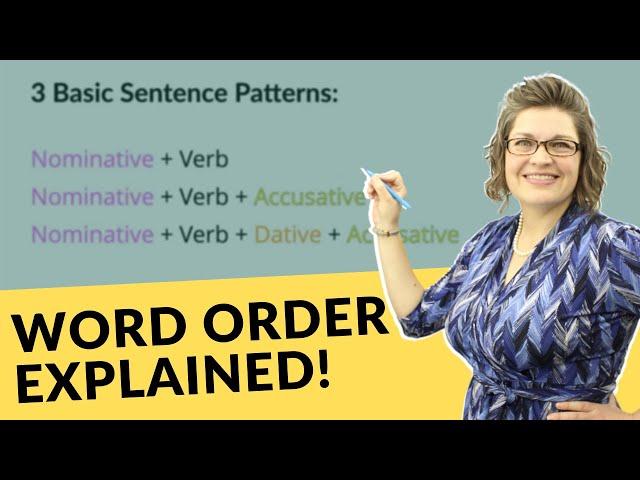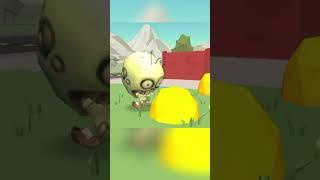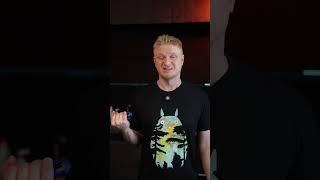
German Word Order & Sentence Structure | German with Laura
Комментарии:

Where is the link
Ответить
Amazing how many English loan words are in German now
Ответить
Why is it "Die Frau singt ihrem kleineN Baby ein Lied"? Isn't it -M ending in Dativ? (das Baby - neutrum)
Ответить
👌💐🤗
Ответить
Just watched the first few minutes of the video and I can say youre a brilliant teacher. The way you explained everything is just phenomenal! I would love to buy a paid course for German A2 on udemy if you have it.
Ответить
After... four months of studying German, the "word order for emphasis" was an ah-ha moment lacking in every other video I've watched so far. I'm going to watch this video 30 more times just to make sure I've (finally) locked these concepts in. DANKE!
Ответить
Why irhem and not ihre, why kleinen and not klein
Ответить
A suggested game for German learners: speak English with German syntax. Examples follow.
Qu.: Have you today the car seen? Ans.: No, today have I it not seen. Qu.: Where park you it usually? Ans.: I take usually the train. Qu.: Know you that Tom sick is? Ans.: No, that knew I not. Etc.

I have discovered that I am learning faster NOT trying to translate in my head😮
I am still having some trouble pronouncing a long German O vowel, when I say Das Boot, it sounds the same as the boat in English

Wow wow wow!
Ответить
wow what a great videos. You are the best german tutor any student can ask for. Thank you very much
Ответить
You are the best
Ответить
Thanks a lot miss now I understand how I make german sentence ❤
Ответить
Can you please make a video about where to put adverbs, particles, words like auch, wieder and so on. Thx
Ответить
Great video.
Ответить
This is REALLY helpful, thank you.
Ответить
Beautifully explained. Thanks a lot. Could not find your video series 5 ,6
Ответить
teacher, why do we put the second verb at the end? What's de logic, the meaning of it, the reason? I memorized the rule, but never, neeever understand it.
Ответить
This video and all German with Laura videos are truly the best!
If your wanting to learn German this instructor is the place to start, hands down!

This video was very helpful as I am beginning to learn German and always found the sentence structures confusing. This video really helped me understand it very easily. Thank you!
Ответить
I have learned the very basic German from apps, but this channel is taking my comprehension and understanding to much higher levels than any app ever could. Some people have a calling to be a teacher, and Laura is easily one of those people. Your laid back attitude and ability to explain complex ideas simply are unmatched and greatly aprreciated. Thank you!
Ответить
What's the correct order of adverbs and objects after the verb in position 3?
Ответить
thanks...very nice presentations and clarifications
BTW: should talk a bit slower

fortschritte Erklarung, danke schön
Ответить
Thanks very much for this video. It all makes much more sense now. I'm Portuguese and I've learned English, Spanish, French and Swedish but was struggling to make sense of the patterns I was encountering in German. Really helpful! Thanks!
Ответить
THIS IS A JEWEL OF A VIDEO!! Thank you so much!! Spanish is my first language, and exactly this "grammar formulas" were the ones that helped in my English learning process, now you did the same for my German learning process, thank u so much!!
Ответить
Thank you Laura 😃 Your videos on German are great. Super helpful!
Ответить
I’m interested in learning as many languages as i can, my list of learning languages go:
German
Spanish
French
Italian
Dutch
Russian
Welsh
Navajo

This incredibly helpful. Thank you, Laura!
Ответить
Danke !!!!
love from india

Laura, i have a question how would I know the right translation to the sentence if the sentences change yet still means the same that to me is hard to understand
Ответить
I don't see the link for it :(
Ответить
Thank you soe much :)
I started tutoring lessons 3 weeks ago and i've been having a rlly hard time understanding the sentences, even though i know what the words meant. Now it finally makes sense. I still rely on translation, hopefully someday i'll be able to think in German

I am truly enlightened now, thank you for your fluent speaking style and great explanation 😊🤍
Ответить
You're an amazing teacher -- word order isn't so hard after all. Danke schön!
Ответить
Why did you stop uploading new videos 😭😭😭
Ответить
Good 👍. Why 'B' is used insted of 'z' with the word 30: dreiBig in German dear madam ?
Ответить
Thanks
Ответить
Thank you so much!!! You have explained the sentence structure in the best possible way. Really grateful.
Ответить
I have to say, this has helped me a lot i am studding German one so i really needed this. But I wouldn’t mind sounding like yoda……..😂
Ответить
Can you do that video on prepositional phrases bitte?
Ответить
Thanks a lot
Ответить
Is it correct to say that you can't always change around the order of a sentence with only feminine nouns? Because the word infront doesn't seem to change in the different cases?
For instance
"Die Katze fängt die Maus"
And
"Die Maus fängt die Katze"
Can only be distinguished in meaning by word order, right?
Also doesn't a verb + nominative order imply a question?
How can I tell the difference between a question and a transposed sentence for the purpose of emphasis?

I haven't learnt any German at all for the 2 years at my school. Now I finally understand the basics! Danke!
Ответить
Bravo again
Ответить
BTW... Portuguese can do that too. Kinda. Translating literally, it goes like this : 1. Uma mulher canta para seu pequeno bebê uma canção; 2. Para seu pequeno bebê canta uma mulher uma canção; 3. Uma canção canta uma mulher para o seu bebê. In usual Brazilian Portuguese the most natural order would be 'Uma mulher canta uma canção para seu bebê', though. That was really enlightening. Cheers !!!
Ответить
Master Yoda approved this lesson ! ;)
Ответить
could understand feel could make veiter vielen dank
Ответить
Thank you for this explanation. Do these rules always apply though, because there is this sentence that seems to me is breaking a few rules yet it is deemed valid. "weil ich am samstag geburtstag habe". Nominative (Ich) and verb (habe) are not next to each other and the verb is at the end and no verb is in second place. What am I missing here? Thanks
Ответить


























